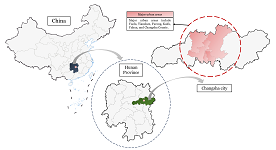
Asia Pacific Academy of Science Pte. Ltd. (APACSCI) specializes in international journal publishing. APACSCI adopts the open access publishing model and provides an important communication bridge for academic groups whose interest fields include engineering, technology, medicine, computer, mathematics, agriculture and forestry, and environment.

As China's pillar industry, the property market has suffered a considerable impact in recent years, with a decline in turnover and many developers at risk of bankruptcy. As one of the most concerned factors for stakeholders, housing prices need to be predicted more objectively and accurately to minimize decision-making errors by developers and consumers. Many prediction models in recent years have been unfriendly to consumers due to technical difficulties, high data demand, and varying factors affecting house prices in different regions. A uniform model across the country cannot capture local differences accurately, so this study compares and analyses the fitting effects of multiple machine learning models using February 2024 new building data in Changsha as an example, aiming to provide consumers with a simple and practical reference for prediction methods. The modeling exploration applies several regression techniques based on machine learning algorithms, such as Stepwise regression, Robust regression, Lasso regression, Ridge regression, Ordinary Least Squares (OLS) regression, Extreme Gradient Boosted regression (XGBoost), and Random Forest (RF) regression. These algorithms are used to construct forecasting models, and the best-performing model is selected by conducting a comparative analysis of the forecasting errors obtained between these models. The research found that machine learning is a practical approach to property price prediction, with least squares regression and Lasso regression providing relatively more convincing results.
Editor-in-Chief
Editorial Board

Prof. Mehmet Cetin
Kastamonu University,
Turkey
Polish Scientific Bibliography
































